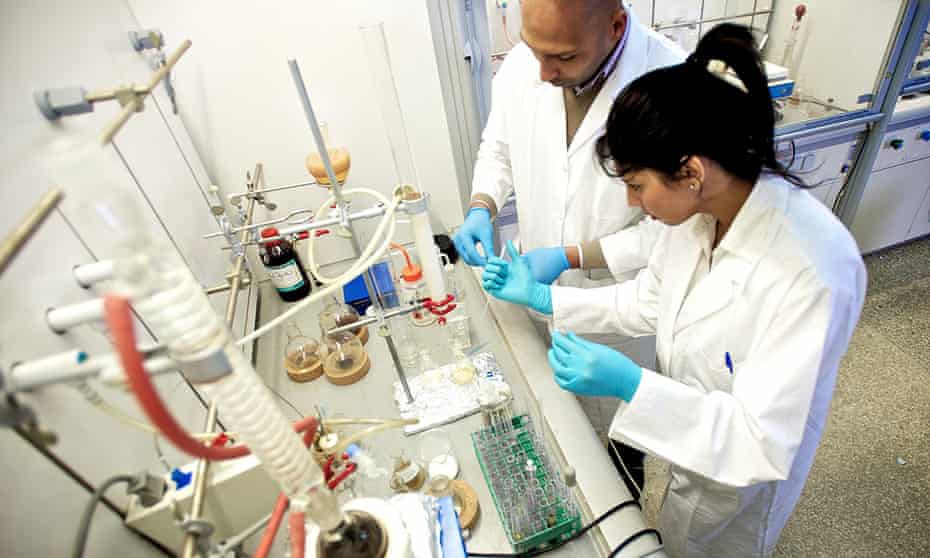The first African-produced tests to diagnose breast cancer and leukaemia will become commercially available within months, cutting costs and waiting times for patients across the continent.

Most of the diagnostic kits for cancer and other diseases in Africa are expensive imports from outside the continent, usually from Europe and the US.
“The price of the kit can be double that of what it would cost to manufacture it locally. It is also a long process. It can take weeks or months for the kits to arrive,” said Hassan Sefrioui, an executive board member of the Moroccan Foundation for Advanced Science, Innovation and Research (MASciR), which developed the new tests.
Development of the cancer kits has been under way since 2010, Sefrioui said, and the leukaemia tests have already been used in Morocco on 400 people. Previously, all samples would have to be sent to France for analysis, prolonging and delaying treatment. “But with locally manufactured test kits, we can get results within hours,” he said.
Breast cancer is the most prevalent cancer in Morocco and a leading cause of death among women. While global survival rates for those diagnosed early is high, a large percentage of breast cancer cases in low- and middle-income countries, including Morocco, are detected at a later stage.
Africa’s reliance on imported tests, treatments and vaccines has been a pressing concern for health authorities on the continent since the Covid-19 pandemic. An estimated 70% of pharmaceutical products and up to 99% of vaccines used in African countries are imported.
“Africa is over reliant and over dependent,” said Christian Happi, director of the African Centre of Excellence for Genomics of Infectious Diseases, at a health conference in Rwanda last month. “The continent was entirely dependent on the outside at the start of the pandemic. We could not even produce simple diagnostics.”
The conference discussed ways to increase Africa’s manufacturing capacity. Last year saw the launch of the African Pharmaceutical Technology Foundation to expand production, and plans to improve regulatory oversight through the African Medicines Agency (AMA) were approved in 2019.
“We still need a comprehensive strategy to support local manufactures,” said Yenew Kebede Tebeje, head of laboratory systems and networks at the Africa Centres for Disease Control, which has been cooperating with MASciR to make the Moroccan diagnostic kits available in other African countries. “This includes access to hard currency and raw materials as well as creating a conducive regulatory environment for the evaluation of diagnostics.”
This regulatory framework, said Tebeje, could be facilitated by the AMA once it is fully established. “We are working with the AMA to harmonise regulatory processes. So, for example, if a product is evaluated in Kenya there will be no reason for Ethiopia to do the same evaluation.”
During the pandemic, MASciR developed Covid diagnostic kits, which were sold in Senegal, Tunisia, Ivory Coast and Rwanda. Sefrioui said the cancer tests could also be available to those countries.
The initial costs to procure the cancer tests from MASciR may be more expensive than from non-African competitors, said Tebeje, because small companies have to import raw materials. “But what I’m envisioning is the long-term impact. When these companies become strong and expand their manufacturing capacity, we will get to see the cost benefits.” He said costs could be cut within three years.
By Weronika Strzyżyńska, The Guardian Newspaper